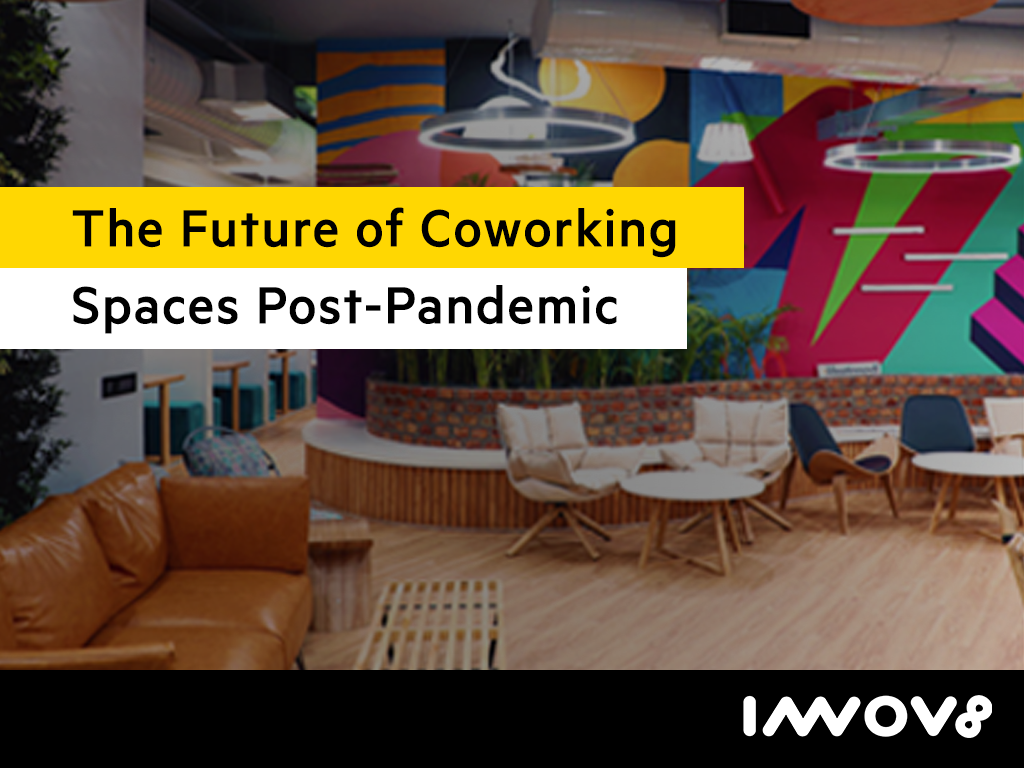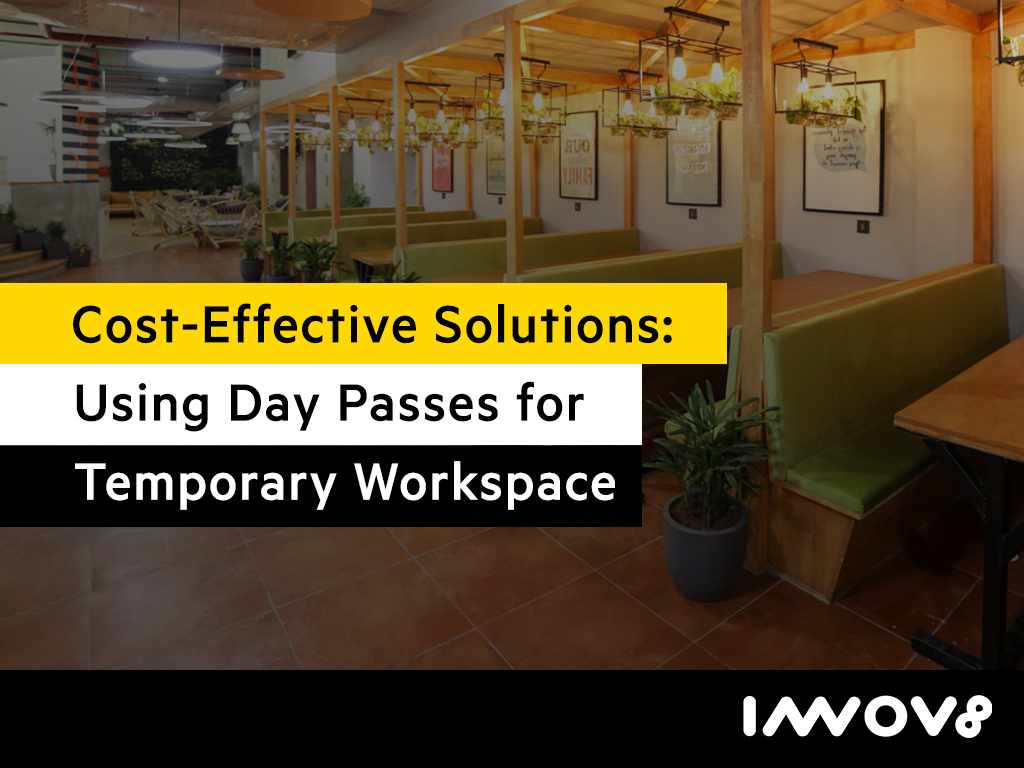Looking at the world as it exits the pandemic’s dark phase, coworking spaces stand for a revolutionary transition. Once seen as trendy add-ons to conventional offices, these shared spaces are now evolving to meet the new needs of companies and employees.
This blog covers trends and forecasts for coworking businesses. It stresses flexibility, remote working, and a focus on community and welfare. Let’s find out how these premises will transform the work cultures once coronavirus is over.
Effect of Pandemic on Coworking Spaces
The COVID-19 epidemic has greatly affected the global coworking space market. COVID-19 has presented this working culture with certain challenges alongside some possibilities.
These are:
- Coworking spaces and large public areas could shut down. Lockdowns and low foot traffic hampered their income.
- Coworking spaces became less relevant when working remotely became the norm. Still, it also pointed out a limitation of home-based work.
- Coworking spaces have adapted in these ways: to improve health policies on safety and hygiene, to adopt hybrid work, and to offer flexible, virtual solutions.
- Actually, from pre-COVID time, the demand for coworking spaces has increased up to 95%, and now it holds a 27% share of the total office space in India.
- Experts expect that corporations that reduce office sizes and switch to the hybrid model will increase the share of shared spaces in commercial real estate.
Predictions and Trends for the Future of Coworking Spaces in a Post-pandemic Society
This is likely to lead to significant shifts and changes in the coworking spaces after COVID-19. In the world after COVID-19, the coworking business changes trends and models to adapt to new needs due to pandemic attacks.
The following are some significant predictions and trends that will affect the future of coworking spaces:
Embracing Hybrid Work Models
- Flexible working arrangements will become part of the coworking spaces, and these are stationery blended with remote working.
- Instead of this, there is a need to have memberships that will allow clients/hybrid workers to book hot desks, book spaces for a few hours, days, or weeks, and instant booking of meeting spaces.
- Such flexible workspaces post-pandemic aim to create a user-friendly environment that promotes togetherness, productivity, and efficiency in a world that embraces new-style work in both virtual and physical settings.
- Flexible solutions provided by the coworking spaces will then transform into basic infrastructures where professionals look for flexibility and a community of collaborators in working arrangements.
- We will place special emphasis on creating work areas that promote teamwork and independent work tailored to the needs of future work environments in a post-COVID-19 world.
Increased Focus on Health and Safety
- To accommodate social interactions, health and safety will be a severe focus in coworking spaces after COVID-19 with increased cleaning and implementation of touchless systems.
- Supplementary measures will be to enhance the existence of vents to enhance the flow of fresh air as well as to make the working conditions safer.
- We will change the layouts of the workplaces to observe social distancing by communicating the permitted number of people in specific areas and sharing resources among the employees.
- Since this is a new concept, it will be important for the coworking spaces to segregate collaborative areas from areas that practice social distancing adequately.
- Blow alarms, health check stations, and sanitation will cover the perimeter of the regions to assist in healthy living.
- Higher importance paid to cleanliness and sanitation is going to be the status quo in the Post-pandemic coworking trends world, thus providing the members with a sense of security.
- These measures will not only help increase members’ confidence. Still, they will also spark interest in safe, flexible, and comfortable workspaces among new clientele amidst the coworking industry changes.
Adapting to Remote Work and Work from Anywhere Trends
- When the contracts for working remotely start trending, the coworking space comes in to foster professionalism that is different from working from home.
- More flexible and versatile coworking spaces will remain relevant, along with a tendency to develop the concept outside large cities and in rural areas and small towns adapted to the WFH paradigm.
- Remote services like handling mail or answering business calls on behalf of the concerned company shall increase, given that most business organisations lack a physical address.
Technological Integration and Innovation
- Future workspaces will use technology to make the member experience better or improve their management in terms of smart booking systems, mobile applications, and other digital equipment for cooperation.
- AI and automation in running the coworking services will be evident, and this will enhance a smooth workflow for the users.
- Coworking spaces will use smart technology to improve effectiveness, address environmental concerns, and enhance overall client satisfaction.
- The continuously developing telecommunication networks and technologies will also foster remote work trends and the use of a blend of online and physical work environments in coworking spaces among professionals.
- In the case of the development of post-pandemic coworking trends, technology will have a special significance in configuring further characteristic features of work environments that are suitable to accommodate the changing culture of work.
Maintain a Proper Work-life Balance
- Businesses sharing spaces will focus on employees’ well-being and their ability to manage stress effectively by introducing programs that encourage personal development, customised chairs and desks for employees, and stress relief sessions.
- Building a healthy environment that encompasses different aspects of the employees’ lives is going to be critical for the development of coworking spaces in the future.
- Areas will combine aspects of leisure, physical activity, and options for interacting with the natural environment to improve the current situation.
- The effort to promote wellness will not only increase the efficiency of work but also contribute to everyone feeling they are part of a group.
- Coworking space evolution that takes into consideration health and wellness will place priority on the new norms of working in a post-COVID-19 world, noting remote work tendencies and the future of work environments.
Strengthening Community and Collaboration
- In the same regard, the key concept of community will be a dominating look in the coworking spaces despite these difficulties.
- New means, including virtual, online networking sessions and hybrid workshops, will establish entrepreneurial paths and psychological proximity-based encounters.
- Besides the efficiency increase, the emphasis on wellness will also include feelings of togetherness among the members.
- By focusing on health and claims, coworking spaces will respond to the new needs of professionals in the post-COVID-19 world, as well as the tendencies in remote work and the future of workplaces.
Diversification and Specialisation
- Modern coworking spaces will be different from conventional concepts, located in areas such as industries, interests, technologies, arts, and environmentalism.
- As the concept of coworking widens and becomes more common, single niche-oriented spaces designated for specific industries will emerge and gain popularity.
- Pricing policies remain flexible for the travel industry and will continue to increase the availability of options for the members.
Sustainability and Eco-Friendly Practices
- Coworking centres are focusing more on sustainable practices. They are using green buildings and promoting eco-friendly behaviour. These trends will follow them into the further enactment of their futures.
- We will focus on some aspects of coworking spaces. These include the type of building, layout, energy use, waste disposal, lighting, and furniture.
- Coworking spaces will focus on integrating sustainability with health in new ways as part of their daily strategy.
These are the basic trends and forecasts that define the future of coworking spaces in a post-COVID-19 world. Today’s coworking spaces must evolve. A rigid approach isn’t feasible. The focus will be on technology, community and flexibility.
Future of Hybrid Work Models
New generations prefer coworking spaces. This is due to the rise of hybrid work and new coworking formats after COVID-19. As firms adjust to changing work dynamics, several significant trends emerge:
- Flexible Workspaces Post-Pandemic: After the pandemic, interest in adaptable workspaces has grown. Companies have embraced remote work, so the future of workspaces should be designed to include both office workers and telecommuters. Coworking is becoming a necessity in offering this flexibility.
- Technology Integration: Technological advancement under remoteness and onsite working is the leading driver to the growth of coworking spaces. Tech that enables good virtual communication and project management will be vital to hybrid work.
- Focus on Community and Wellbeing: The COVID-19 pandemic raised worries about employee isolation. Coworking spaces are now focusing on building a community to boost staff health. These points are vital. They will help businesses attract workers who want to work in an inclusive, professional setting.
- Sustainability and Design: Hybrid work models must look good. Their designs should reflect ideas that prioritise sustainability and people’s health.
Coworking space evolution patterns after the pandemic are more adaptable, digitised, and commune based on the new requirements of the workforce.
Conclusion
The future for coworking spaces is bright. They are adapting to new, post-pandemic demands. As flexible work becomes more common, success requires flexibility and adaptability. Wellness and sustainability aspects are coming into spaces to help improve members’ experiences.
The growth of a specialised microcosm of coworking spaces fulfils various professionals’ requirements and embraces togetherness. Coworking spaces are currently the focus of technology and work design. They can transform the modern work environment.


